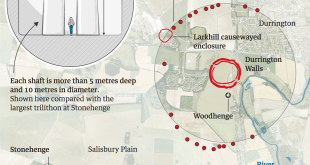In its annual economic report, the BIS further warms to the idea that CBDC is a key part of central banks’ response to financial innovation. Central banks play a pivotal role in maintaining the safety and integrity of the payment system. They provide the solid foundation by acting as guardians of the stability of money and payments. The pandemic and resulting strain on economic activity around the world have confirmed the importance of central banks in payments. Digital innovation is...
Read More »Money and Memory
On Alphaville, Claire Jones and Izabella Kaminska discuss privacy issues related to CBDC. In the background, Kocherlakota’s “Money is Memory” is lurking.
Read More »“Macroeconomic Analysis,” VoxEU, 2020
VoxEU, June 22, 2020. HTML. Is macroeconomics useful? Of course. To make the point, academics must regain the interpretative high ground from market commentators. While it helps when policymakers understand fundamental macroeconomic concepts, it is equally important for the general public to grasp them. More, and how this relates to the new textbook, on VoxEU.
Read More »Durrington Shafts
Stonehenge is tiny. Dalya Alberge reports in the Guardian.
Read More »Robert Pirsig’s “Zen and the Art of Motorcycle Maintenance: An Inquiry Into Values”
Quality, not subject or object, as the elementary fabric. ἀρετή. A rehabilitation of the sophists. Some quotes: If the purpose of scientific method is to select from among a multitude of hypotheses, and if the number of hypotheses grows faster than experimental method can handle, then it is clear that all hypotheses can never be tested. If all hypotheses cannot be tested, then the results of any experiment are inconclusive and the entire scientific method falls short of its goal of...
Read More »Covid-19 Superspreading Events Database
By Koen Swinkels, on Medium, a database and preliminary interpretation subject to various caveats. The preliminary suggested interpretation is as follows: Nearly all SSEs in the database — more than 97% — took place indoors The great majority of SSEs happened during flu season in that location The vast majority took place in settings where people were essentially confined together, indoors, for a prolonged period (for example, nursing homes, prisons, cruise ships, worker housing)...
Read More »“The Cancel Culture Twitter Mob Comes to Economics”
On his blog, John Cochrane comments on Harald Uhlig’s tweets and the reaction by Janet Yellen (AEA), other established economists, the Chicago Fed, and the JPE. In the comments, one person provides additional information and another links to the list of signatories.
Read More »Financial Account and International Investment Position of Switzerland
On the SNB website, Lukas Heim and Christoph Kappeler explain the integration of the financial account, the international investment position and the Swiss financial accounts.
Read More »Debt Monetization
On VoxEU, Refet Gürkaynak and Deborah Lucas argue in favor of helicopter drops to finance the fiscal burden due to Covid-19 and they propose an elegant way to implement such drops without undermining the central bank’s equity position (if regulators accept accounting tricks). The special issue bonds would be zero coupon perpetuities and therefore would not obligate Treasury to any future payments. The legislation would require the Fed to buy these bonds from the banks at par. The...
Read More »Censorship Resistant Payment Technologies
On Coin Center’s blog, Matthew Green and Peter van Valkenburgh write: Censorship resistance is the only way to guarantee that a digital asset truly is “bearer” and can be sent directly from one person to another without reliance on a third party. Cryptocurrencies achieve this property by making network participants (miners) compete for the power to add transactions to the ledger. Even if some miners wish to censor a transaction, we assume that others will not, particularly if it means...
Read More » Swiss Economicblogs.org
Swiss Economicblogs.org

